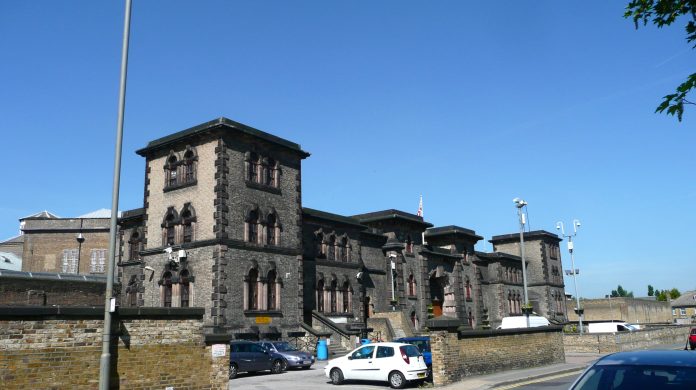Probation Officer, West Midlands
Criminal justice trade unions, staff, prisoners and the public have been sounding the alarm about the crisis in prisons and the wider criminal justice system for years.
For years we have had a system characterised by dangerous levels of overcrowding, understaffing and slum conditions for prisoners. Wandsworth prison itself has a maximum capacity of 900, but the head of the Prison Officers’ Association reported last week it is currently housing 1,600. The government’s own figures published recently show that there are less than 900 prison spaces nationally, with the population currently standing at over 87,000.
It was only in August that the president of the Prison Governors Association admitted: “We are stuffed to the gunwales. We are doing little more than warehousing people”. It is no wonder that 2023 has seen an explosion of ‘rapid deployment cells’ or ‘portacabin prisons’ installed in the yards of 18 prisons to the tune of £34 million from the public purse to try and cope with a crumbling system.
Unions have also pointed to the attrition of experienced staff, who have seen their terms and conditions smashed over successive austerity governments, as being the main reason for chronic understaffing. Staff absences due to mental health issues have rocketed alongside reports of assaults on staff. It is no wonder that a survey published in June found that 43% of prison officers in England and Wales plan to leave.
This has meant that prisoners that are assessed as being a risk to the public are held in horrendous conditions, without access to rehabilitation programmes, education, training, or mental health and substance misuse support. This also means that staff are often forced to take shortcuts with necessary security procedures and risk assessments.
This chronic mismanagement of our justice system is also mirrored by Tory former justice secretary Dominic Raab’s bulldozing of the parole process, where prisoners who have been deemed suitable for progression to an ‘open prison’ or community release by an independent Parole Board have had their moves bureaucratically denied by the Secretary of State, who is only required to ‘rubber stamp’ their move. The approval rate from the Secretary of State after the Parole Board has recommended progression fell from 94% to just 14% after Raab took over the reins.
Open prisons provide lower-risk prisoners with risk-assessed access to the community, to outside employment, family visits and a gradual return to wider society, which is widely believed to be much more successful in reducing reoffending. While the mainstream prison population is bursting at the seams, these open prisons are half empty.
This contrast highlights that the government does not care about investing in a functioning criminal justice system that is safe and effective for prisoners, staff and the public alike. It wants ‘justice on the cheap’, placing all of us a greater risk.
It is no wonder that it is in this climate of overcrowding and staff attrition in slum jails that individuals can exploit the many pitfalls in a capitalist justice system unfit for purpose.







